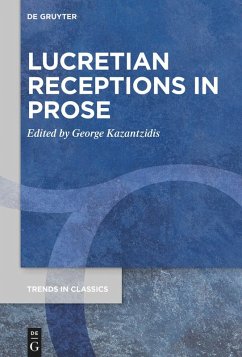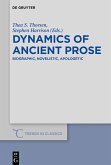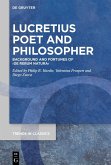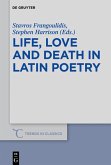Susanne Gatzemeier's 2013 monograph (Ut ait Lucretius: Die Lukrezrezeption in der lateinischen Prosa bis Laktanz) is an invaluable contribution to the topic but by no means exhaustive either in terms of the potential intertextualities it traces or in terms of its interpretive methods and insights. At the same time, recent studies implicate Lucretius' name in discussions of prose writers who were not that often thought in the past to have engaged with the De Rerum Natura in an active way. Caesar and Livy but also Vitruvius and Tacitus are some good examples. The present volume taps into this discussion and broadens further our understanding of Lucretian reception in prose writers, including Cicero, Celsus, Seneca the Younger, Quintilian, Pliny the Younger, Plutarch and Lactantius.
Building on the vast scholarship on the significance of Lucretius as a model for later poets, the volume sheds new light on the De Rerum Natura's afterlife by looking at its presence in philosophical prose, medical writing, oratory, epistolary writing and Christian theology.
Dieser Download kann aus rechtlichen Gründen nur mit Rechnungsadresse in A, B, BG, CY, CZ, D, DK, EW, E, FIN, F, GR, HR, H, IRL, I, LT, L, LR, M, NL, PL, P, R, S, SLO, SK ausgeliefert werden.









